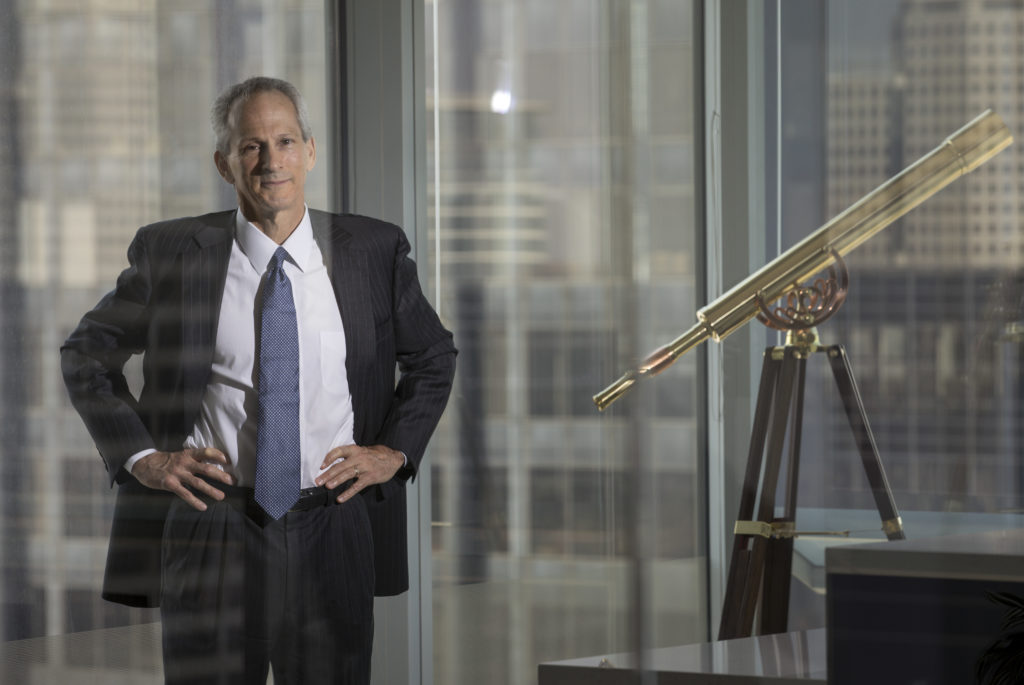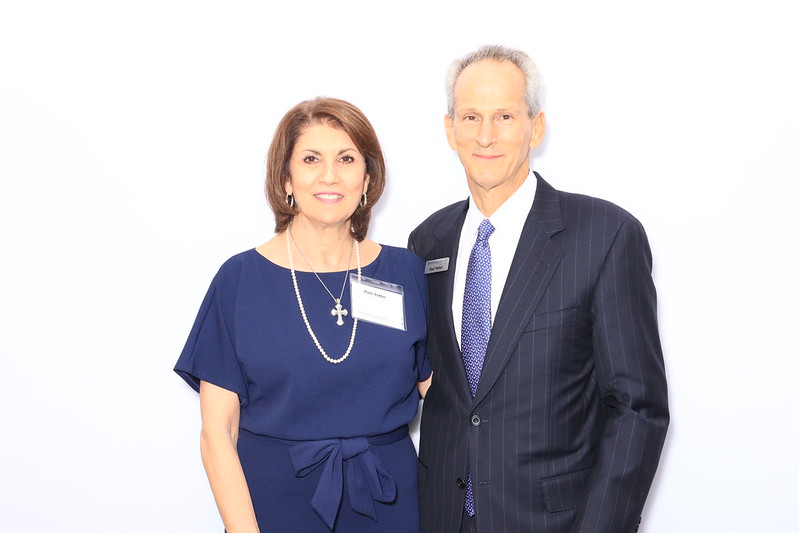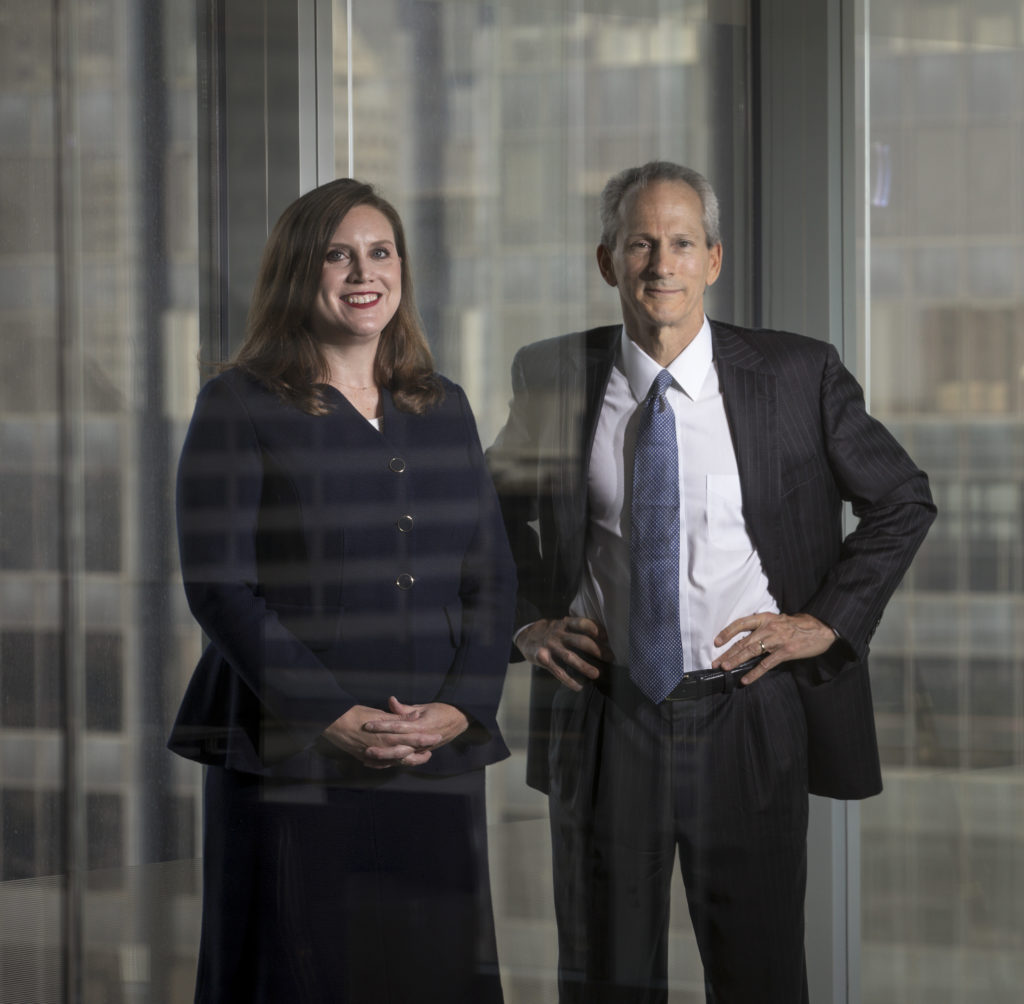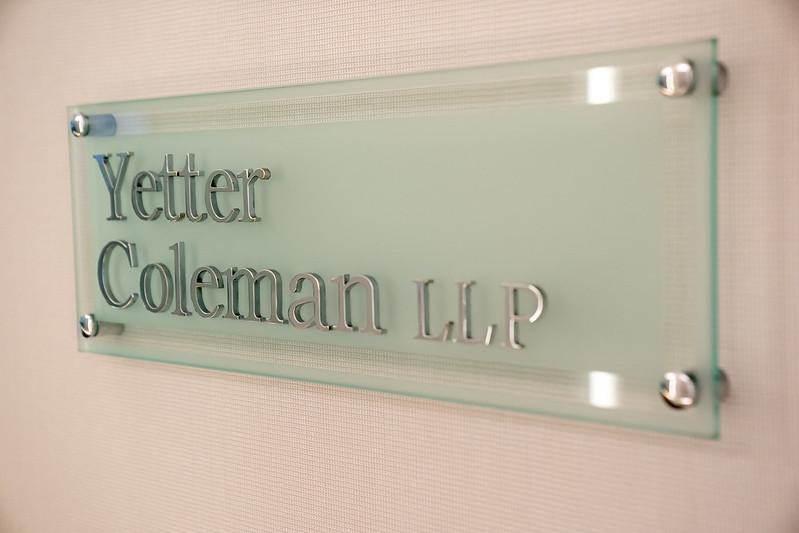
Twenty-five years ago, Paul Yetter faced a major decision while representing a group of investors of Calgary-based Bre-X Minerals, a mining company that falsely claimed it had discovered gold in Indonesia.
Yetter, then a young partner at Baker Botts, led a class action on behalf of his clients. The problem was that one of the targeted defendants was going to be long-time Baker Botts client JP Morgan.
Yetter’s choice: Walk away from his client or walk away from one of the most prestigious, profitable law firms in Texas.
“I was not comfortable leaving the client, so I left the firm,” Yetter told The Texas Lawbook in a 2019 interview.
In 1997, he and former Baker Botts partner David Warden started their own firm, Yetter & Warden. A decade later, Yetter welcomed Texas appellate lawyer Gregory Coleman as a partner, and the firm was renamed Yetter Coleman.
This year, the firm celebrated its 25th anniversary. It boasts 50 lawyers and has become one of the most respected complex civil litigation boutiques in Texas. Attorneys at Yetter Coleman have scored dozens of major victories.
The Texas Lawbook recently interviewed Yetter about the firm’s success during the past quarter century and what lies ahead.
Texas Lawbook: When you started the firm 25 years ago, did you think you would have a 25th anniversary party?
Paul Yetter: When we started the firm, all we thought about was paying the bills – one month at a time. We had no grand plan.
Lawbook: What have been the biggest surprises for you during the past 25 years?
Yetter: I’ve been surprised at how fluid our profession has become. It now seems rare for a lawyer to stay at one firm for more than a few years. I never saw that coming.
Lawbook: In Natalie Posgate’s 2019 profile of you, she wrote that you still bring a brown-bag lunch to work and take the bus. Do you still and why do you? Does it say something about you or about the way you want to be?
Yetter: I’m lucky enough to do what I love. I love being a trial lawyer. I also happen to love peanut butter sandwiches. I don’t love sitting in rush hour traffic.
Lawbook: Tell our readers about your experiences in the foster care litigation against the State of Texas. How many pro bono hours have you worked on the case and how many for the firm?
Yetter: Our work for foster children has been a labor of the heart. We’ve devoted thousands of hours to the case since we filed it in 2011. I’ve done my share, but it’s been my colleagues who made the difference. Plus our co-counsel and one amazing judge.
Lawbook: What has been the most frustrating element and the most gratifying part of the foster care litigation? Is there an end in sight?
Yetter: The state denied there’s a crisis and fought against reform for almost a decade. Our court system finally forced its hand. Now, the state says it wants to cooperate, and we’ve made progress. But key changes are moving too slowly. We will never give up. It’s too important.
Lawbook: How has the practice of law in Houston changed during the past 25 years?
Yetter: Houston is still a very special place to be a litigator, with fearsome, honorable lawyers and wise judges. But trials are dwindling every year, which is a terrible shame. Jury verdicts reflect the voice of normal citizens. We can’t hear that voice if we don’t have trials.
Lawbook: How do you want to see the firm grow or evolve over the next few years?
Yetter: We’re in a growth spurt right now, as we transition to our next generation. I’ll keep doing what I do for a while longer, I’m hoping, but I’m thrilled to watch our young stars become the next great Texas litigators. Along the way, we’ll be sure to keep our special culture intact.
Lawbook: What am I not asking that I should be asking?

Yetter: What’s my secret weapon? That’s easy. My wife Patti. She was 8 ½ months pregnant with our seventh son when we started the firm. She’s been my patient and insightful partner at home all along. And she always was, and still is, way busier than me.
The Texas Lawbook asked Paul Yetter to identify the 10 most important developments during the 25-year history of Yetter Coleman that were critical to its success. Below are the 10 he selected:
1. Attracting our initial core group of clients and commercial litigators, many of whom are still practicing with the firm. These clients’ needs and litigators’ skills have been a foundation for our growth.
2. Focusing on high-stakes business litigation for both plaintiffs and defendants. It sharpens our courtroom skills and helps us always to think like a plaintiff, creatively and efficiently, no matter which side of the case we’re on.
3. Consistent recruiting of talented young lawyers and staff. We were fortunate to attract some of the best and brightest out of clerkships and law school over the years, like Dori Goldman, Bryce Callahan and Jim Zucker, who are at the core of the firm’s current and future achievements.
4. Early signature trial and appellate wins in and outside of Texas. We tend to keep a low profile in the profession and always have seen our client results as the best marketing for the firm.
5. Adding an outstanding appellate team. Combining a top group of appellate litigators – led by Greg Coleman, then Reagan Simpson, and now Connie Pfeiffer – elevated the firm in talent and national recognition. Integrating our appellate and trial teams has helped generate some of our best client wins.
6. Sticking to basics and relying on the commitment of our clients and team after Greg’s death. Losing a leader and friend can be a showstopper, but we persevered as a firm by focusing on good client service and abiding respect for each other.
7. Long-term pursuit of foster care reform in Texas. This litigation has been a journey for our whole team, one that continues to shape our pro bono commitment to the profession and our community.
8. Great success in selected lateral partner hiring. As our clients’ needs have grown, we realized that our lean team needed to grow. So, we’ve been joined in recent years by top young litigators – like Tim McConn, Connie [Pfeiffer] and Tracy LeRoy – who are talented, collaborative, respected, hungry and ready to lead the firm into our next 25 years.

Photo credit: Houston Chronicle
9. Emerging as a go-to trial team. Over the years, our clients increasingly have hired us to jump into tough cases, help craft and deliver the best trial story and divide up the in-court work with their outstanding corporate counsel.
10. Lots of hard work, perseverance and faith throughout. Achieving something meaningful is never easy. We’ve had plenty of challenges, but our team never gives up.
The Texas Lawbook asked Paul Yetter to identify what he believes are the top 10 firm trial and appellate successes during the past 25 years. Here are his top 10:

1. Won a $136 million fraud verdict for an Australian company in a rural Nevada state court, and settled it for $116 million, in a dispute over a failed copper mine.
2. Defended the Methodist Hospital in its split with Baylor College of Medicine in disputes over charitable funds, research/education programs, physician retention and more.
3. Won a judgment for NRG in San Antonio state court in a $32 billion suit by the City of San Antonio that challenged expansion/funding of the South Texas Nuclear Project.
4. Won liability and remedial orders, affirmed by the Fifth Circuit, in institutional reform litigation against the State of Texas to protect a class of 12,000 foster children.
5. Secured a $225 million-plus settlement for American Airlines during an antitrust trial in Fort Worth state court arising from a group boycott organized by its main ticket distributor.
6. Secured a judgment for Transocean on an appeal to the Fifth Circuit in a dispute over $750 million in insurance coverage arising from the Deepwater Horizon disaster in the Gulf.
7. Won a $152 million antitrust verdict for startup MM Steel, affirmed by the Fifth Circuit, in a dispute over a group boycott by competing steel plate distributors and suppliers.
8. Won a $107 million civil rights verdict for two families against Sacramento County in California federal court after being arbitrarily run out of the gravel mining business.
9. Won a take-nothing verdict for Southwestern Energy in Arkansas federal court in a $300 million dispute over royalty payments to a class of 12,000 landowners.
10. Secured a no-payment dismissal for the former CEO of Cheniere Energy in Houston state court in a $400 million dispute over his development of a critical new LNG project.
